Man’s three basic needs or necessities are generally given as food (including water), clothing, and shelter. Food (including water) is needed to keep body and soul together and give us the energy required for our daily activities. Apart from air, food (including water) is the most basic – and important – of man’s needs. Water appears more indispensable to the human body than food. Clothing basically is meant to keep us warm as well as cover our nakedness. Shelter or accommodation is the roof that we need over our head, just as the Mighty Diamonds crooned.
Taking a cue from the Creator of the universe as told in the BIble, light was the first of His creation to bring order and form into a disorderly and formless world. It was afterwards that He began to create all else.
If a vox populi is conducted among the generality of Nigerians today, I am certain the order of priority will be something like food, fuel and power supply (light). Clothing and shelter will come a distant fourth and fifth. In our institutions of higher learning, however, the order of priority will be different. It will be something like water (including food), power supply (light) and shelter (hostel accommodation).
Many of the disturbances or student unrest that we have witnessed have centred around water and light issues. Only the electricity subsidy that we heard that President Bola Ahmed Tinubu has extended to the hospitals and our institutions of higher learning – if it is substantial enough – will starve unrest in our institutions of higher learning in our present circumstances.
It is a matter for regret that we have proven unable to solve the twin-problems of water and light; rather, they have become exacerbated all over the place. Other problems of decrepit infrastructure, inhospitable learning environment, and inadequate hostel accommodation have joined the league of problems that our so-called leaders of tomorrow contend with in our institutions of higher learning. Things get worse there; they don’t improve or get better.
What you are about to read – Let there be light – was written by Wole Olaoye, erstwhile Student Union president of the then University of Ife (Great Ife), now Obafemi Awolowo University but still “Great” all the same. When we return, we shall make some closing remarks.
“It has been seven seasons now since banner headlines ‘OAU TO GENERATE 8.03 MW OF ELECTRICITY’ announced to the world that Obafemi Awolowo University was poised to become the first university in Nigeria to generate its own power and, in addition, cater to the needs of its immediate neighbour, the Ile-Ife community. In the beginning was the promise and the promise was visionary but the promise has now been dashed.
“In the place of round-the-clock provision of electricity leading to increased productivity, enhanced quality of research and improved health, the university now has an abandoned project with sundry installed equipment and facilities rotting away as yet another symbol of the Nigerian government’s corruption and medieval backwardness.
“In 2017, Obafemi Awolowo University entered into a working relationship with the Rural Electrification Agency (REA) to provide a gas-powered turbine that would produce the institution’s independent power needs. The project was to be delivered within two years.
“When the project was launched amidst pomp and pageantry, the institution’s then Vice-Chancellor, Professor Eyitope Ogunbodede, revealed that with the coming to fruition of the project and consequent disengagement of OAU from the national grid, the institution would save between N35 million and N65 million monthly. He added that their daily energy requirement was below six megawatts. The gas-turbine-based system being installed was projected to produce eight megawatts daily, hence the assurance that the institution would be in a position to share the excess with neighbouring communities.
“Seven other federal universities were also approved to self-generate electricity: Abubakar Tafawa Balewa University, Bauchi; Bayero University, Kano; Usmanu Danfodiyo University, Sokoto; Federal University of Agriculture, Makurdi; Nnamdi Azikiwe University, Awka; University of Lagos, Akoka; Federal University of Petroleum Resources, Warri; in the first phase of the federal intervention.
“For OAU, trouble started in the form of what appeared like a personality clash on the surface but was actually the monster of corruption gripping the federal system under the (Muhammadu) Buhari administration. The Rural Electrification Agency was headed by Clara Ogunbiyi at the time. For some reasons, there was no love-lost between her and the newly-appointed Minister of Power, Saleh Mamman. If you put your ears to the ground, you would hear that the lady was considered uncooperative with the various sleaze schemes brought to her table. Eventually, she left Nigeria to its peccadilloes and resumed a new job in a saner environment at a global agency.
“Ogunbiyi was replaced as managing director by Ahmad Salihijo, who did nothing to facilitate the completion of the Ife project but soon demonstrated that he had demons of his own to contend with. As soon as the Buhari administration expired, the Economic and Financial Crimes Commission (EFCC) swooped in. Salihijo was suspended by the new Tinubu administration. Many eyes popped when the EFCC made public the kernel of its findings. One of the pegs of the investigation was the uncovering of 27 accounts linked with the suspended REA Managing Director.
“The EFCC said, among other things, that about N1.2 billion, which immediately accounted for Ahmad’s suspension, had been wired into the accounts of eight staff members, including two directors. The allegations against the top officials of REA are criminal conspiracy, criminal breach of trust, misappropriation of public funds, procurement fraud and money laundering.
“In announcing Salihijo’s suspension in a statement signed by Ajuri Ngelale, the presidency had said: ‘In the light of new findings unearthed during a comprehensive investigation into the financial activities of the Rural Electrification Agency (REA), President Bola Tinubu has approved the indefinite suspension of the Managing Director/CEO of the Rural Electrification Agency (REA), Ahmad Salihijo Ahmad, alongside three executive directors of the agency, from office. Furthermore, President Tinubu has ordered a wider investigation into the conduct of the aforementioned officials in a fraudulent mis-expenditure amounting to over N1.2 billion over the past two years, some of which (finds) have already been recovered by anti-graft agencies’.
“Cynical Nigerians said it would all end up as a game of musical chairs. Abba Abubakar Aliyu was appointed as the MD/CEO to replace Ahmad; Ayoade Gboyega as executive director, corporate services; Umar Abdullahi Umar, executive director, technical services; Doris Uboh, executive director, rural electrification fund (REF); and Olufemi Akinyelure, head of project management unit, Nigeria electrification project.
“Although Ngelale reiterated President Tinubu’s determination to elevate the yearnings of Nigerians for good governance and qualitative service delivery above the narrow interests of individuals who are entrusted to provide critical services to Nigerians, the Ife power project stalls still.
“The institution’s stakeholders who have been anxiously hoping that all encumbrances in the way of the completion of the project would immediately be removed were surprised that, so far, nothing concrete is happening. The Asian staff who came for the installation of the last set of equipment on site have since returned home. Then, some sources indicated that the Tinubu government wants to convert the project to a solar-powered facility instead of the gas originally designed and upon which the 75 percent completion already achieved is based.
“There is also talk of introducing a new player who had never been part of the project. Nigeria! Now, being a self-confessed Engineering illiterate, I will refrain from laughing in vernacular or composing panegyrics concerning this project; neither is required, although this tragic stalling of a developmental project is both galling and dispiriting. For goodness’ sake, how does corruption dog every attempt to gain an inch?
“Rather than news about project completion, we have been regaled with tidings of a different kind. It will be recalled that throughout his tenure, President Buhari removed only two ministers. The man posted to the Ministry of Power was one of them, having been sacked for alleged corruption in September 2021.
“Last July, hearing in his case was stalled because he was said to have suddenly taken ill outside the court premises and had to be sprinkled with water to revive him. While granting Saleh the benefit of the doubt, there have been too many incidents of government officials dramatising fainting spells or showing up in wheelchairs when dragged before the law. Those are mere distractions.
“The buck stops at President Tinubu’s table. Will he allow the present scandalous situation regarding the OAU power project to continue or will he direct the incumbent Minister of Power, Adebayo Adelabu, to expeditiously resolve this matter to ensure that, for once, corruption is put to shame? When will Tinubu declare, ‘Let there be light?’”
So sad, not so? But there are more intrigues to the independent power project issue at OAU than president-emeritus Wole Olaoye hinted at above. He only scratched the issue on the surface. My own investigations revealed that more than corruption was involved. Tribalism also played a role in the stalling of the OAU independent power project. Some of the equipment meant for the project were said to have been cleared at the port and diverted to some other locations up North. The authorities must speak to that.
It is also not the power project alone that is stalled at OAU, the Opa dam that is supposed to supply water to the university community has been mired in controversy. Land grabbers are engaged in a tussle with the university over a swath of land belonging to the university, which has adversely affected the dam. At a point the water in the dam was suspected to have been poisoned by enemies of the university community.
The unwholesome activity of land grabbers is another headache the OAU authorities have had to contend with. Sometime ago, a Fidelity bank account belonging to a prominent traditional ruler into which funds were reportedly paid by those who bought part of the OAU encroached land, made the rounds.
As if these headaches were not enough, illegal miners also invaded the university and began to mine minerals right within the vicinity of the staff quarters and student’s hostel accommodation! Spirited efforts by the university to ward off the encroachers and procure a licence to prospect for minerals on its own land were reportedly rebuffed by the Buhari presidency!
Reprieve, however, came with the new sheriffs in town as Dele Alake, the Minister of Solid Minerals, gave listening ears to the OAU authorities and suspended the so-called licence being flaunted by the encroachers. It is, however, not yet ‘uhuru’ for OAU.The vice-chancellor, Professor Adebayo Simon Banire, has a mountain to climb. So also the new chairman of the OAU council, my friend, classmate and coursemate, Professor Gafar Siyan Oyeweso.
All of us the alumni of Great Ife, male and female, young and old, at home and away must stand up to be counted. The battle is not for the OAU authorities or students alone, it is for all of us that have a stake in Great Ife. If there is one way we can give back to our alma mater, it is to make its battle our battle and its cause our cause.
Former Editor of PUNCH newspapers, Chairman of its Editorial Board and Deputy Editor-in-chief, BOLAWOLE was also the Managing Director/ Editor-in-chief of The WESTERNER newsmagazine. He writes the ON THE LORD’S DAY column in the Sunday TRIBUNE and TREASURES column in NEW TELEGRAPH newspaper on Wednesdays. He is also a public affairs analyst on radio and television.






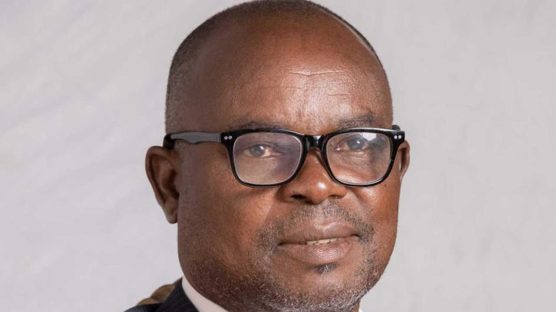


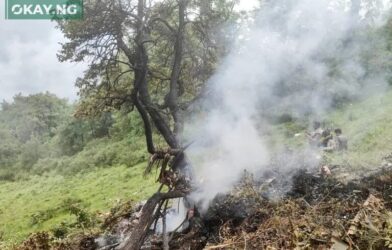
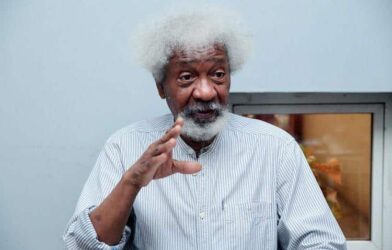
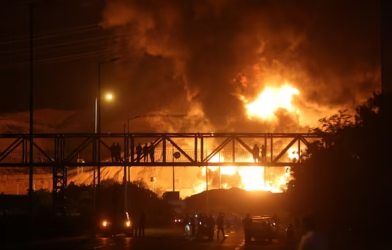
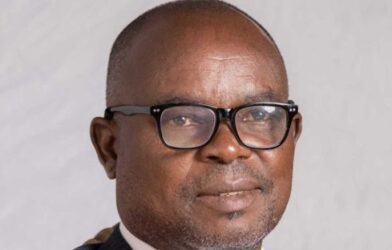

Comments are closed